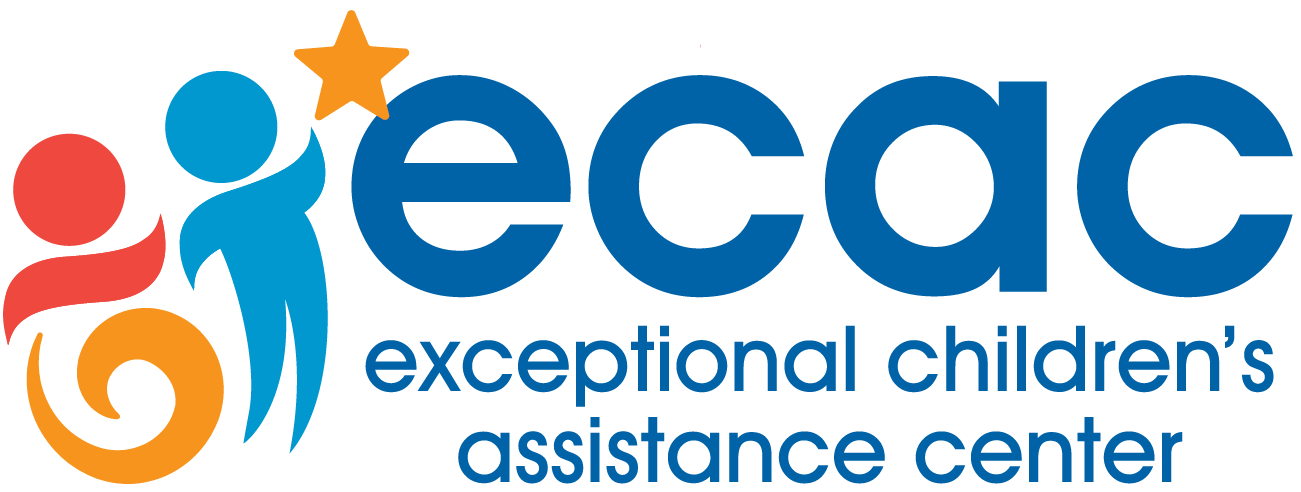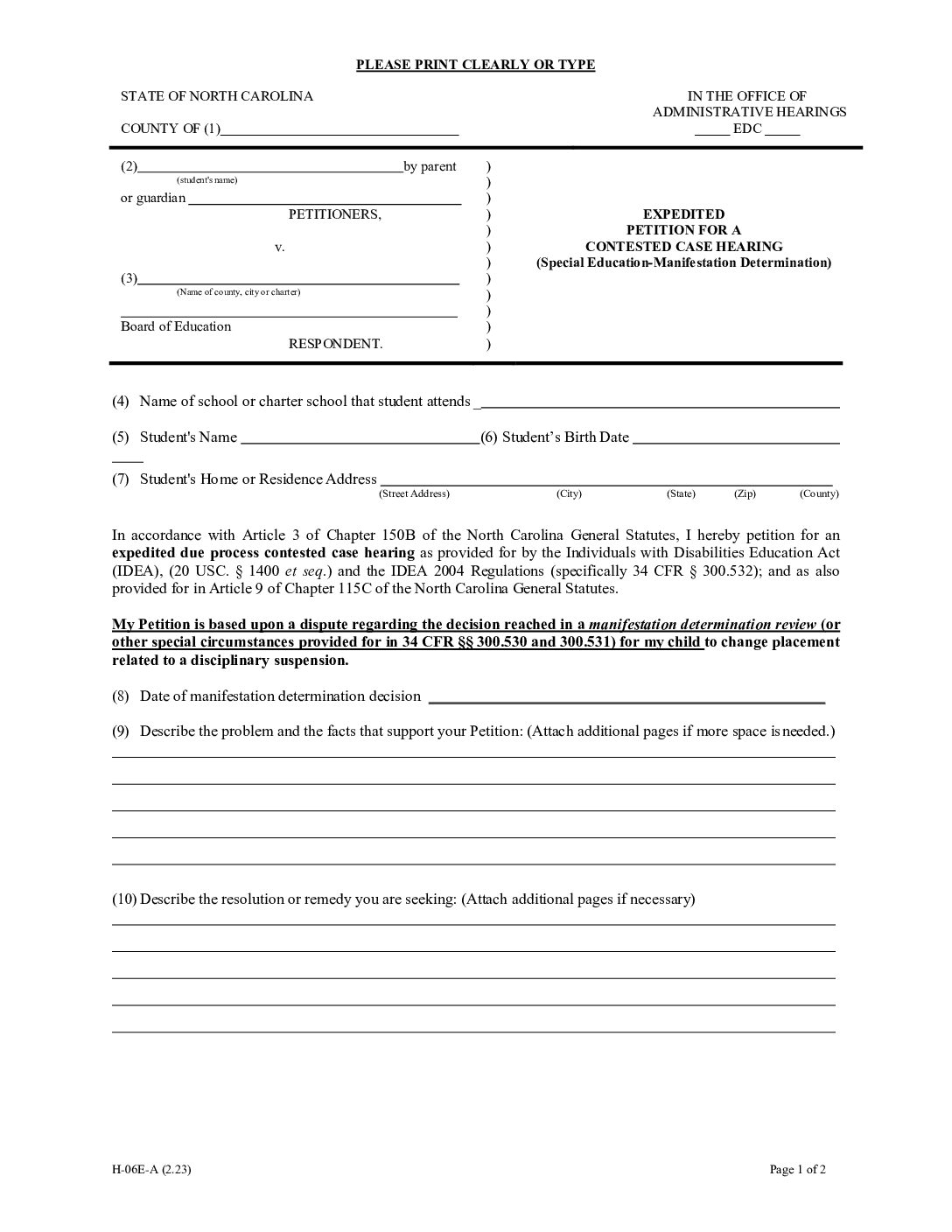
Expedited Petition for a Contested Case Hearing (Special Education - Manifestation Determination)
Categories: Behavior
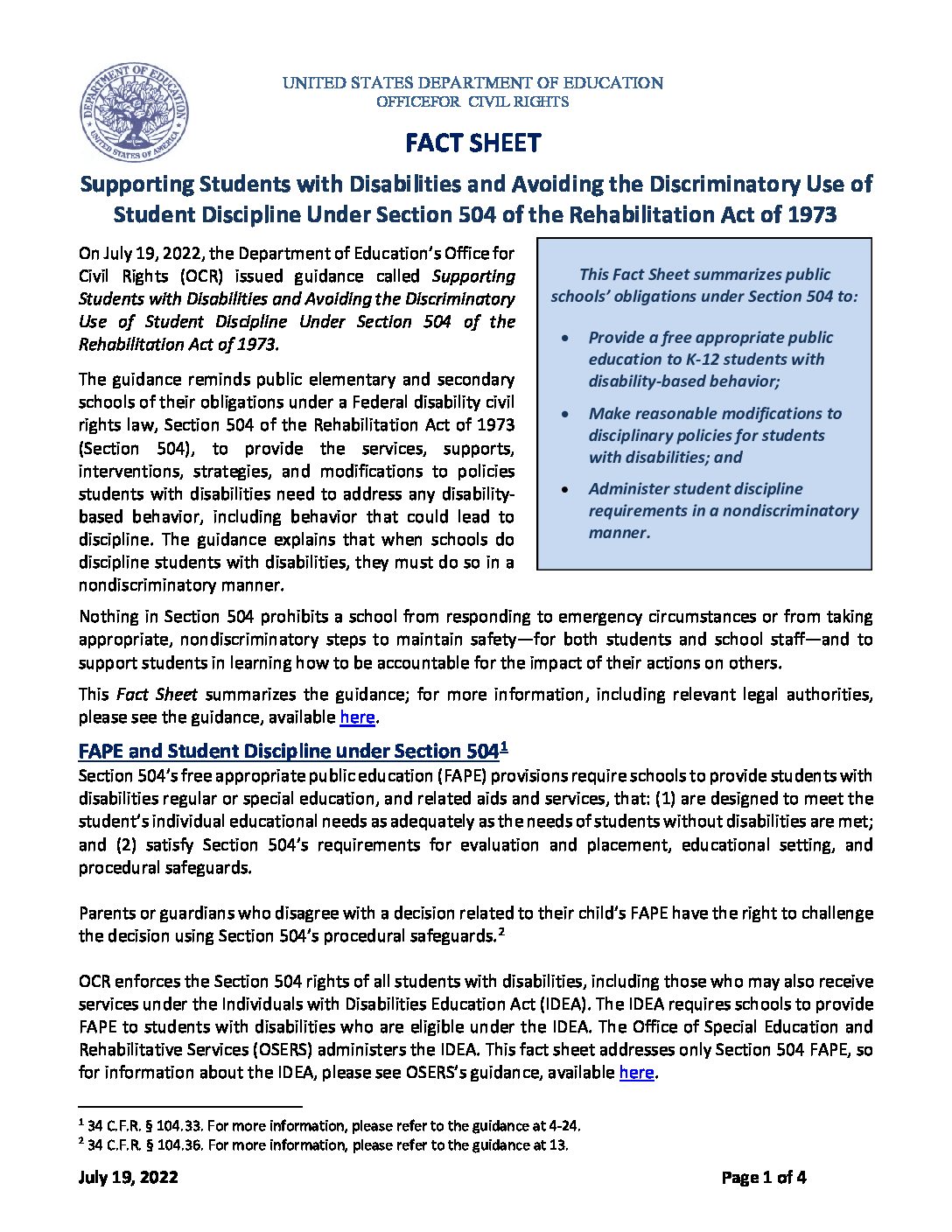
FACT SHEET - Supporting Students with Disabilities and Avoiding the Discriminatory Use of Student Discipline Under Section 504 of the Rehabilitation Act of 1973
New guidance from the US Department of Education on discipline for students with disabilities.
Categories: 504, Behavior, IDEA
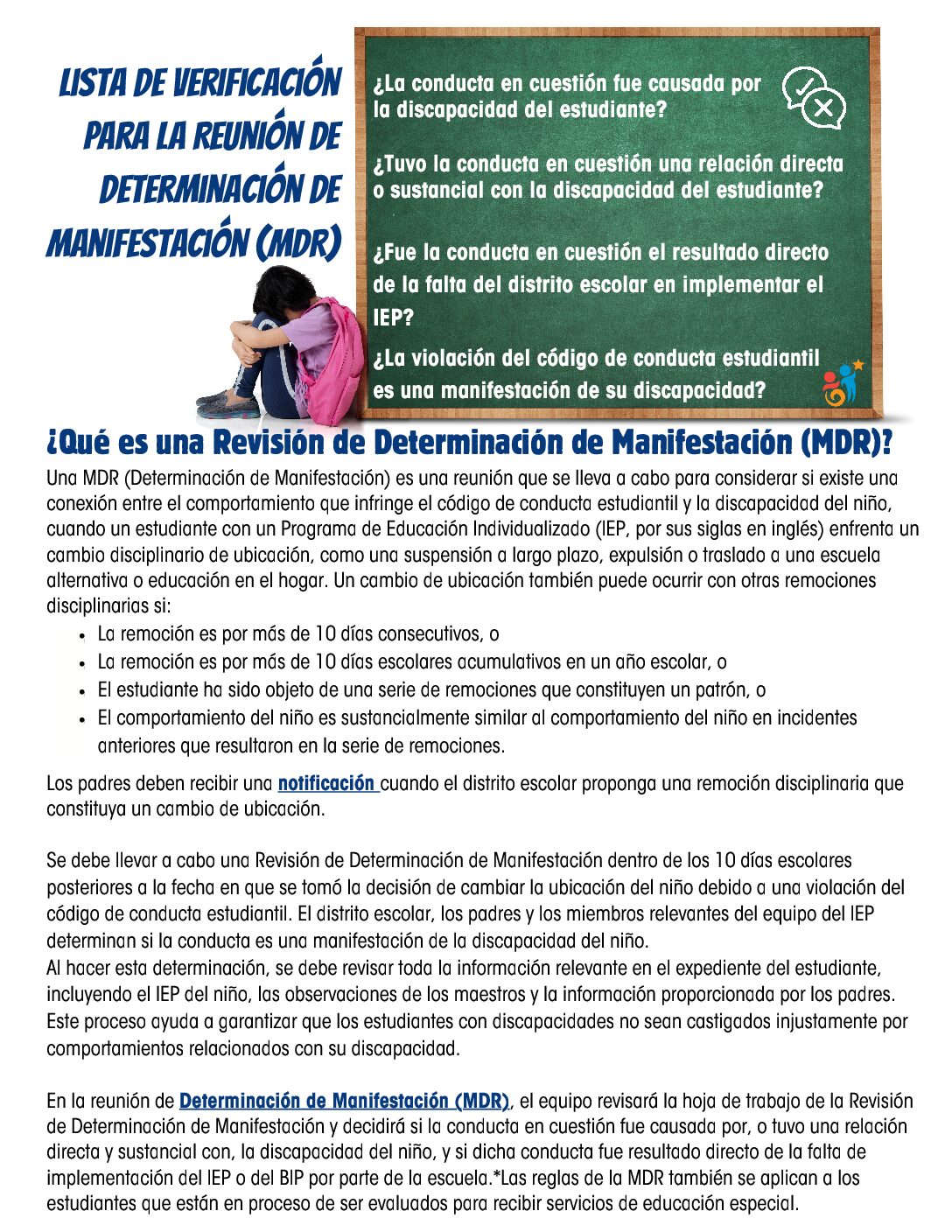
Lista de Verificación para la Reunión de Determinación de Manifestación (MDR)
Una MDR (Determinación de Manifestación) es una reunión que se lleva a cabo para considerar si existe una conexión entre el comportamiento que infringe el código de conducta estudiantil y la discapacidad del niño, cuando un estudiante con un Programa de Educación Individualizado (IEP, por sus siglas en inglés) enfrenta un cambio disciplinario de ubicación, como una suspensión a largo plazo, expulsión o traslado a una escuela alternativa o educación en el hogar.
Categories: Behavior, Spanish
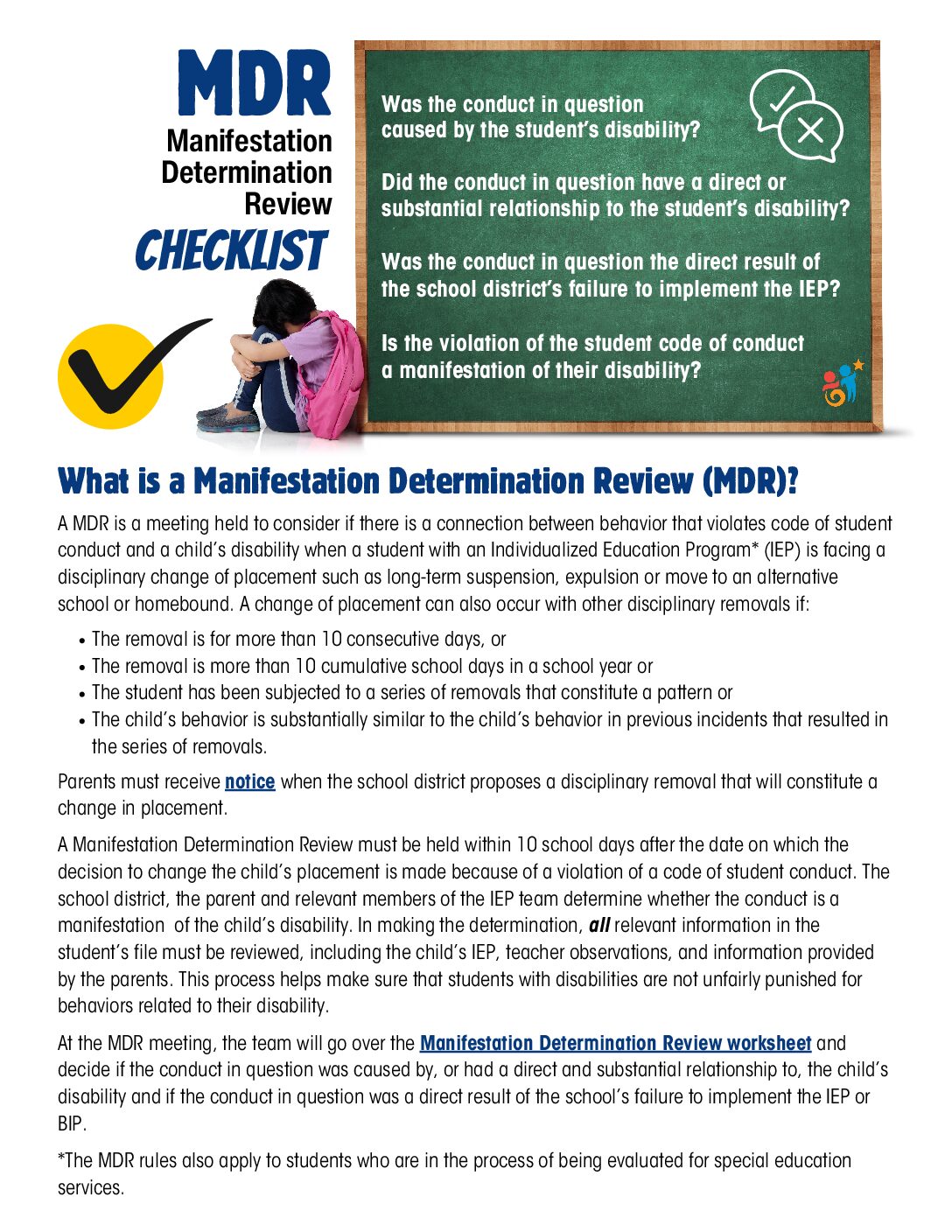
Manifestation Determination Review (MDR) Checklist
A MDR is a meeting held to consider if there is a connection between behavior that violates code of student conduct and a child’s disability when a student with an Individualized Education Program* (IEP) is facing a disciplinary change of placement such as long-term suspension, expulsion or move to an alternative school or homebound.
Categories: Behavior, IEP, Parent Rights, Special Education
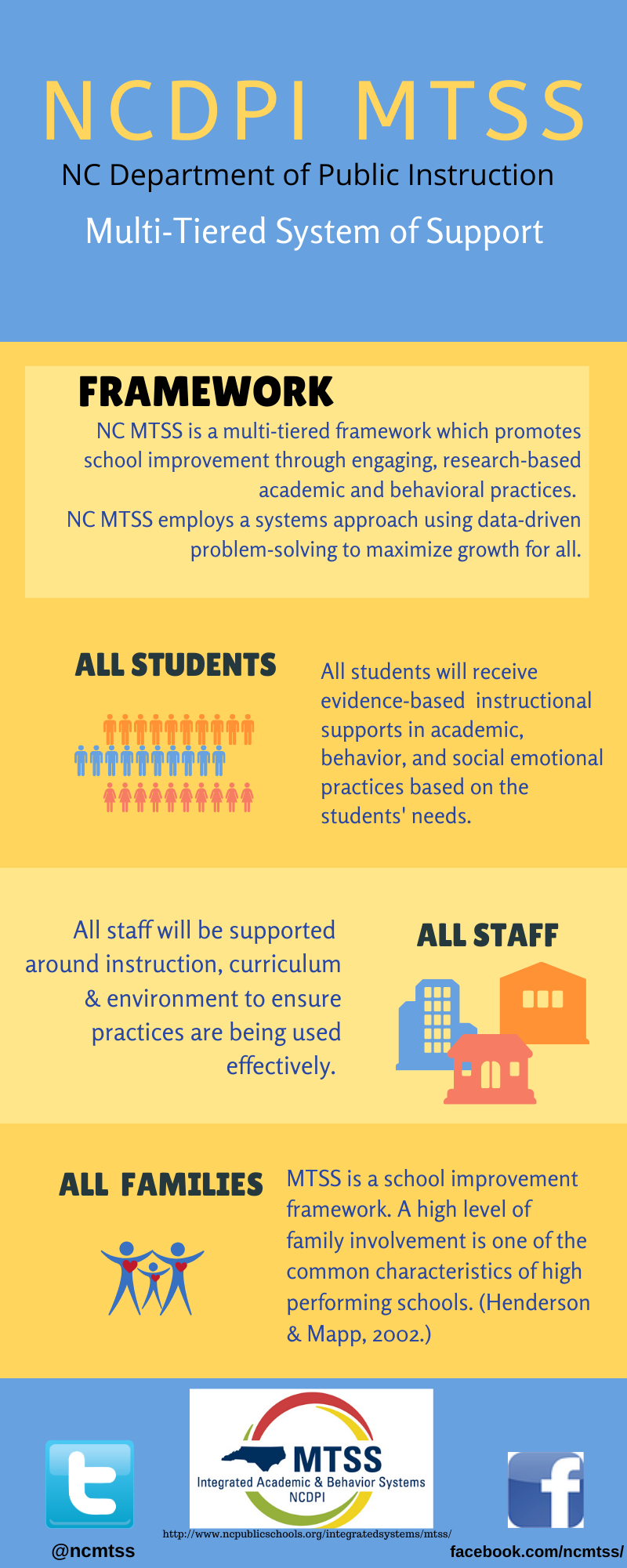
NCDPI Multi-Tiered System of Support (MTSS) Infographic for Families
NC MTSS is a multi-tiered framework which promotes school improvement through engaging, research-based academic and behavioral practices as well as Social Emotional Learning (SEL). NC MTSS employs a systems approach using data-driven problem-solving to maximize growth for all.
Categories: Behavior, MTSS
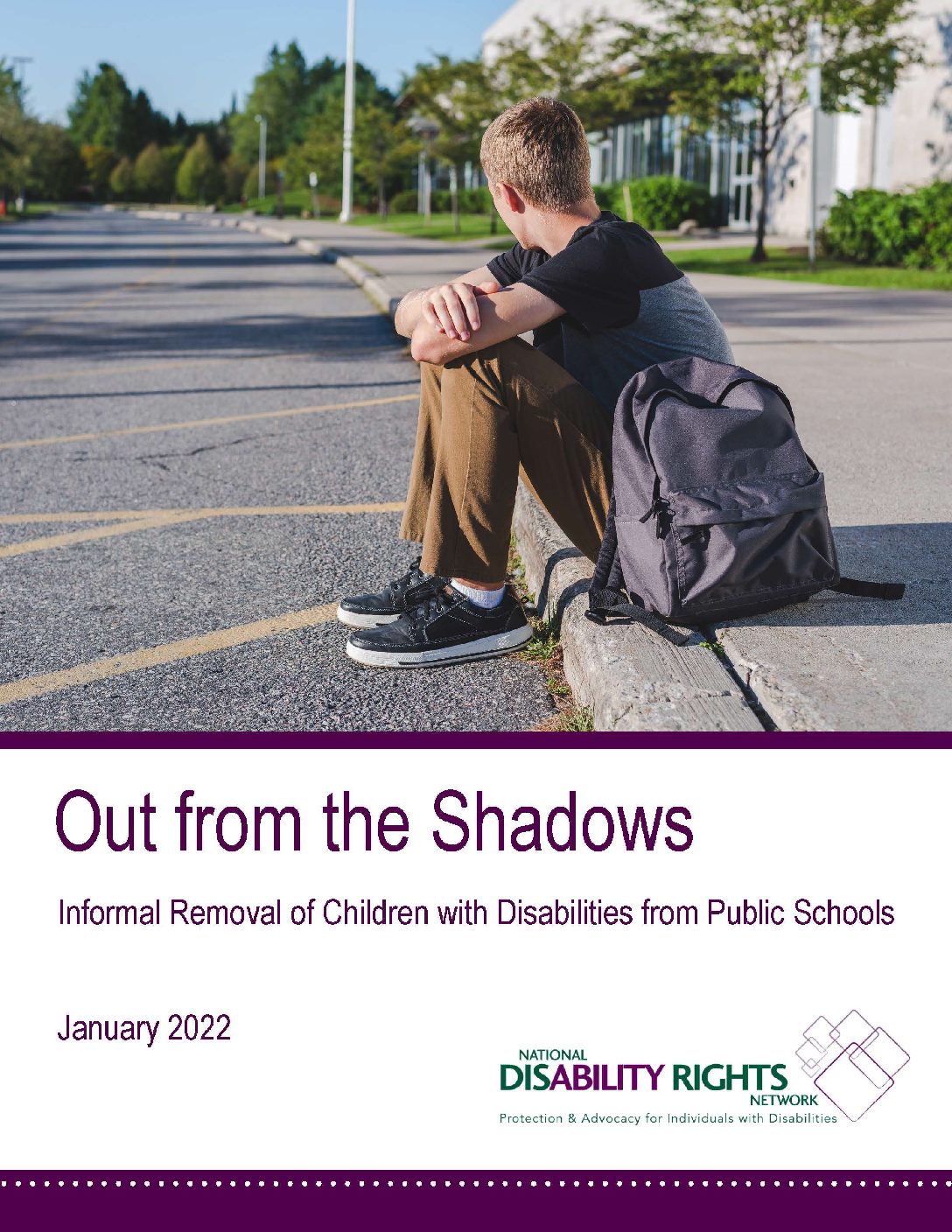
Out from the Shadows
Learn about informal removal of children with disabilities from public schools.
Categories: Behavior, Special Education
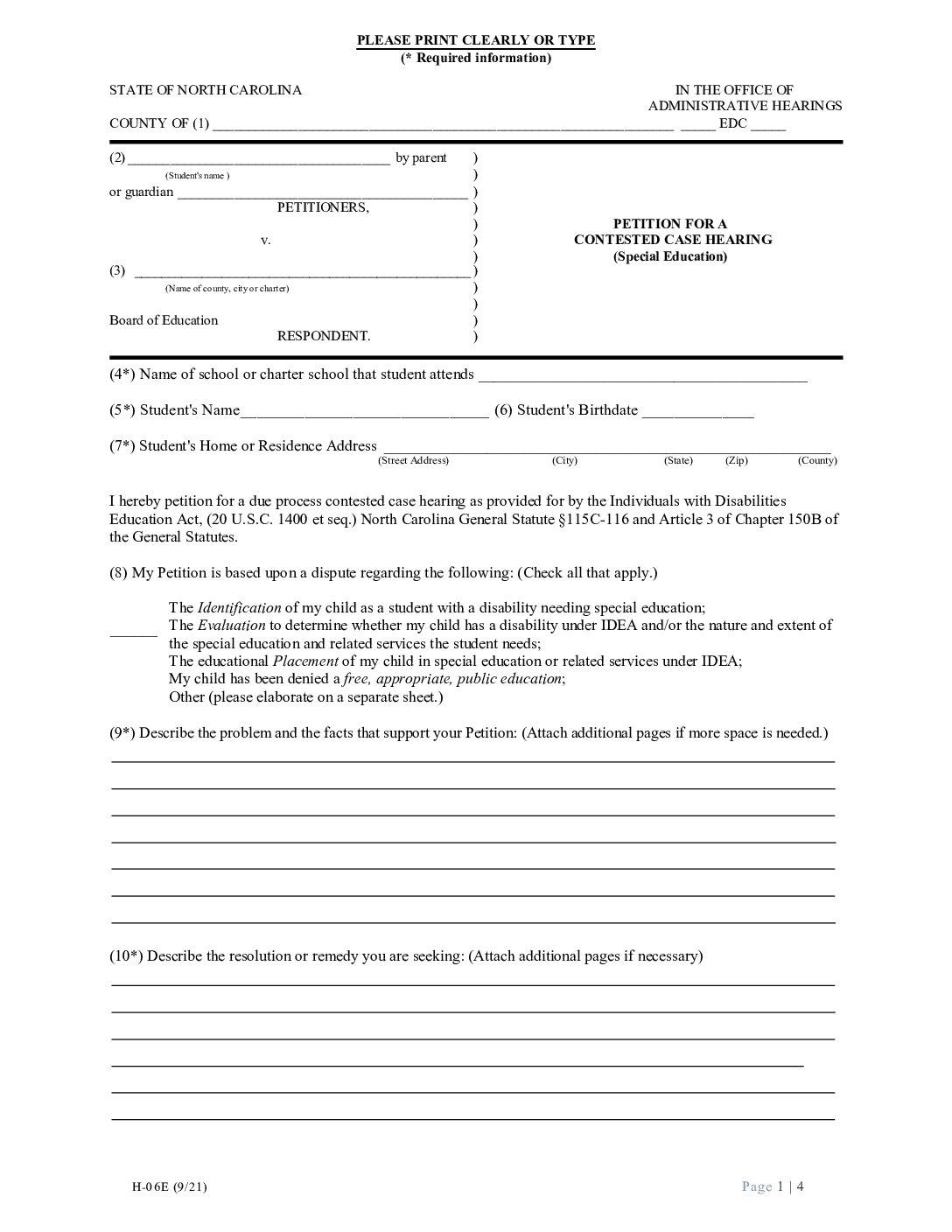
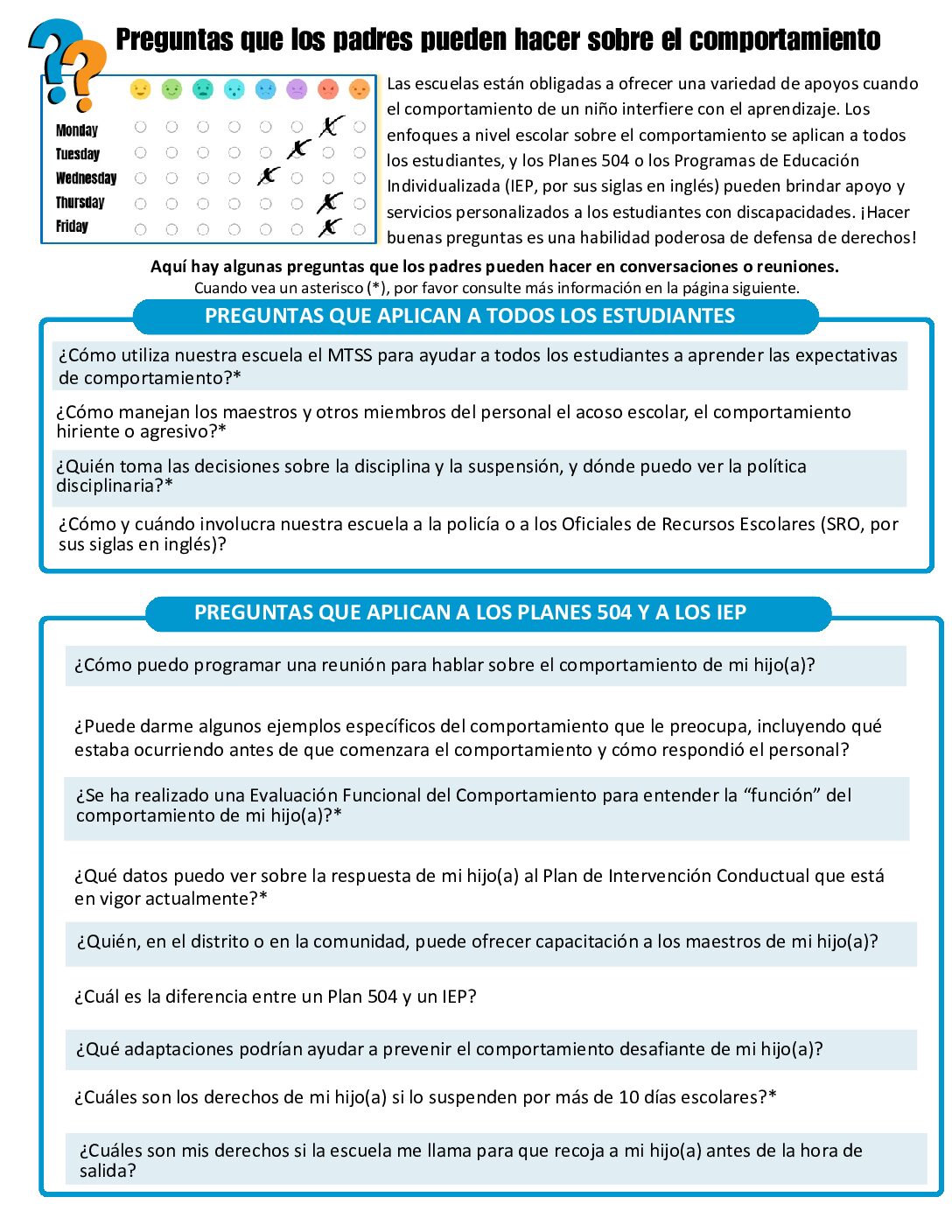
Preguntas que los padres pueden hacer sobre el comportamiento (Questions Parents Can Ask About Behavior)
Aquí hay algunas preguntas que los padres pueden hacer en conversaciones o reuniones.
Categories: Behavior, IEP, Spanish
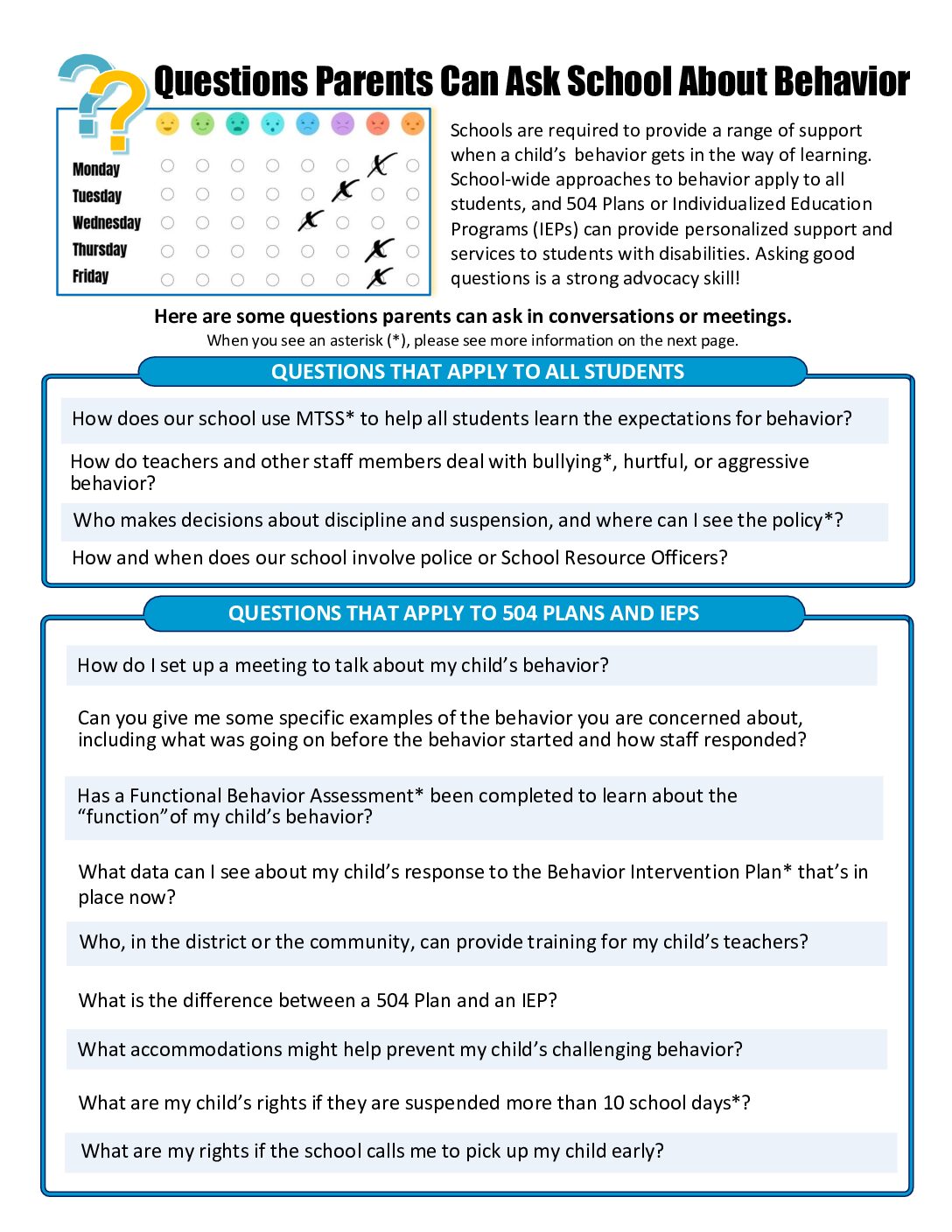
Questions Parents Can Ask School About Behavior
Schools are required to provide a range of support when a child’s behavior gets in the way of learning. School-wide approaches to behavior apply to all students, and 504 Plans or Individualized Education Programs (IEPs) can provide personalized support and services to students with disabilities. Asking good questions is a strong advocacy skill!
Categories: Behavior, Communication, Special Education
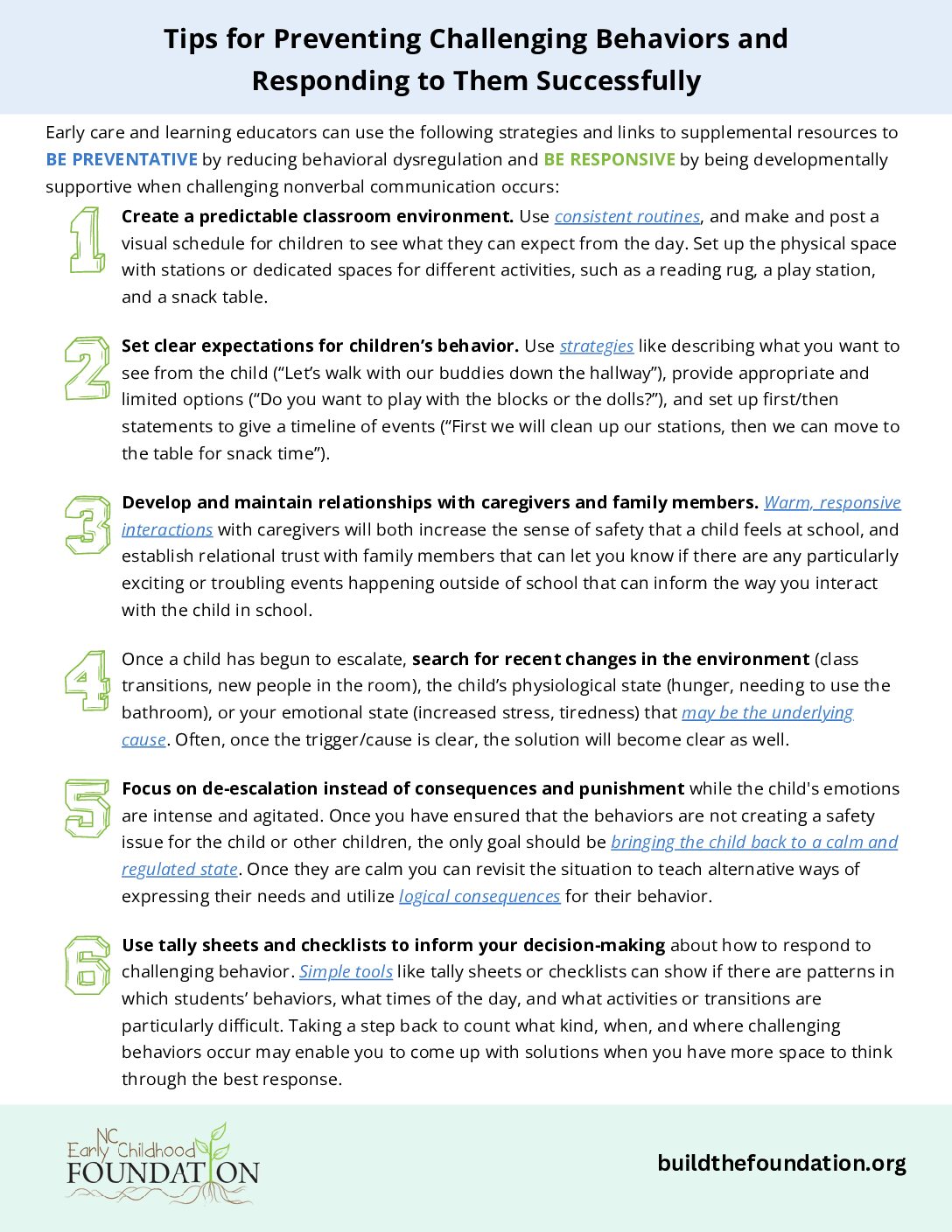
Tips for Preventing Challenging Behaviors and Responding to Them Successfully
Early care and learning educators can use the following strategies and links to supplemental resources to BE PREVENTATIVE by reducing behavioral dysregulation and BE RESPONSIVE by being developmentally supportive when challenging nonverbal communication occurs.
Categories: Behavior, Early Childhood
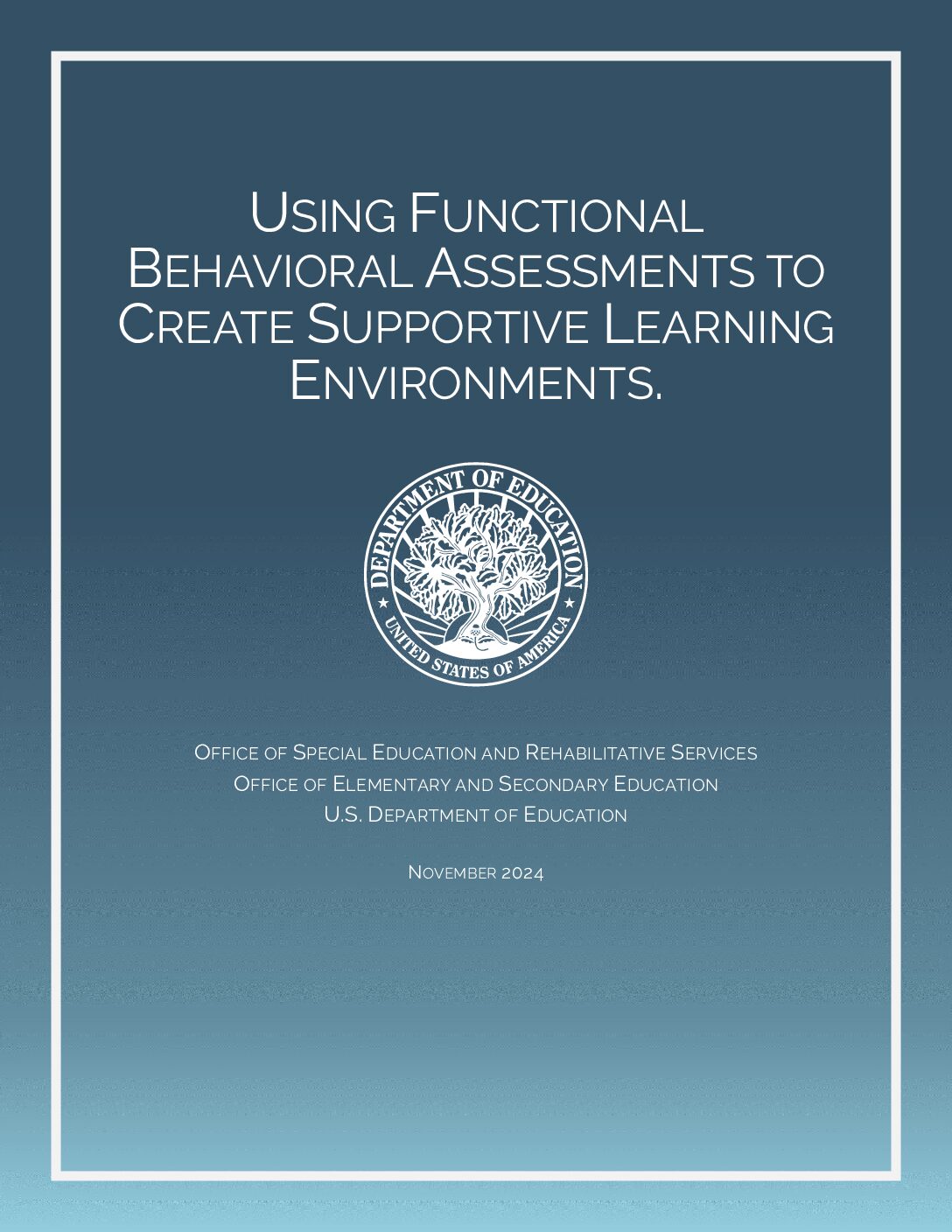
Using Functional Behavioral Assessments to Create Supportive Learning Environments
From the U.S. Department of Education - Using Functional Behavioral Assessments to Create Supportive Learning Environments, guidance to help schools and early childhood programs better support students’ behavioral needs. This guidance focuses on evidence-based practices to support students, with or without disabilities, whose behavior interferes with learning, and is part of the Department’s effort to reduce exclusionary discipline.
Categories: Behavior, Special Education
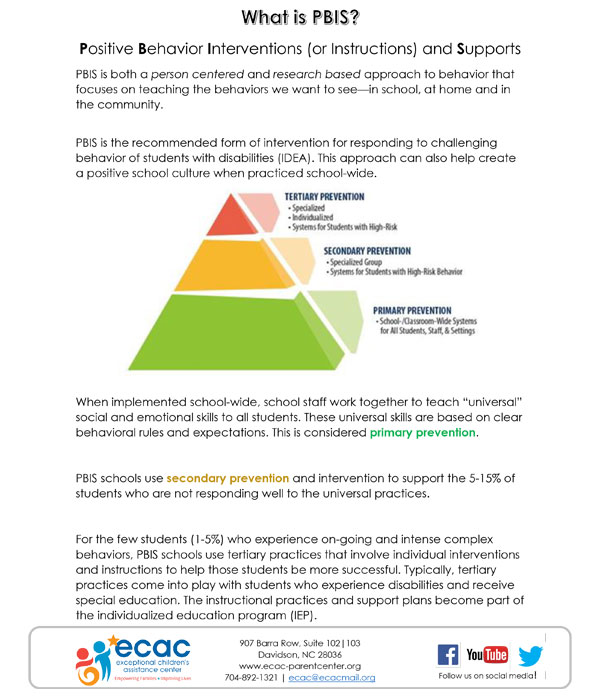
What is Positive Behavior Interventions (or Instructions) and Supports (PBIS)?
PBIS is both a person centered and research based approach to behavior that focuses on teaching the behaviors we want to see—in school, at home and in the community...
Categories: Behavior
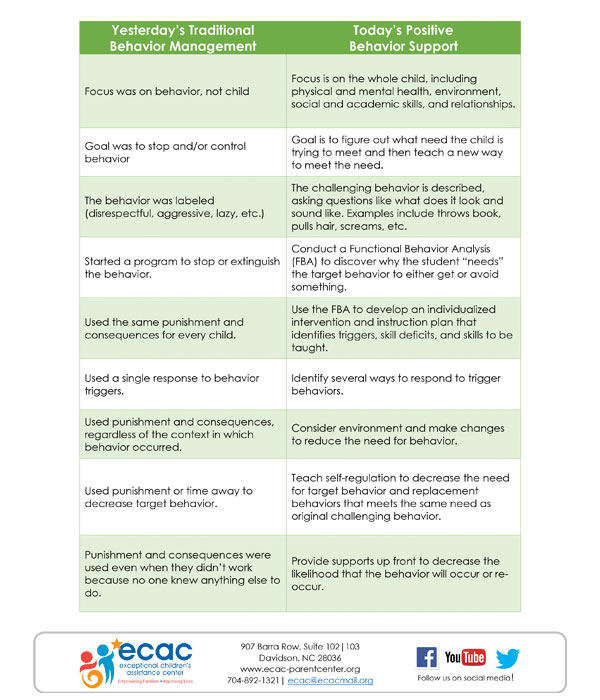
Yesterday vs. Today Behavior
Comparison of yesterday's traditional behavior management and today's positive behavior support...
Categories: Behavior
